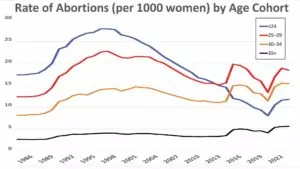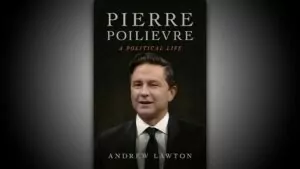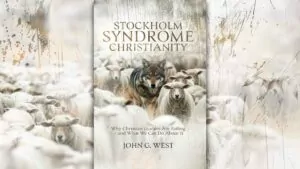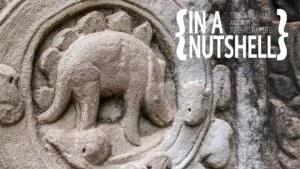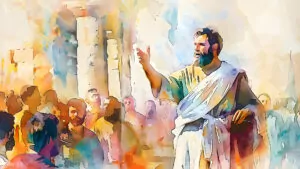Is the State of Israel a fulfillment of biblical prophecy?
The nation of Israel has a special place in the hearts of many Christians. For one thing, the Savior once walked through the land that this nation now occupies. Furthermore, after the destruction of the Jewish state in the year 70 by the Romans, the reestablishment of the State of Israel on the same land after almost two thousand years can be considered to be nothing short of a miracle.
So is the resurgence of Israel as a national entity a fulfillment of biblical prophecy? Many affirm this to be the case. In view of the ongoing conflict in the Middle East, it is good to reflect on these issues.
The longing for a return
Through the centuries, Jews have cherished the hope that some day they could return to the land of their forefathers. After the very last remnants of Jewish political power were crushed with the defeat of the second Jewish revolt under Bar Kokhba (A.D. 132-135), the dream of a return was never forgotten. Synagogue prayers, no matter where in the world they were offered, were made in the direction of Jerusalem. A strong emotional connection with that city was maintained. Through the centuries, the poetry and literature of the Jews spoke of Zion and Israel. Each year the Passover festival would end with the words, “Next year in Jerusalem!”
However, and this is striking, for well over a thousand years, no attempt was made to return to the old Jewish homeland to transform the dream into reality. The pious hoped for a miracle and insisted that it would be blasphemous to force the hand of God by trying to get a homeland on their own. Even in times of tremendous persecution, in which the Jews suffered innumerable atrocities, there was no mass movement to the old homeland. There were some minor exceptions with relatively small groups going to Palestine, but that was all. Far more Jews went to other places for refuge.
In spite of the emotional connection to Palestine, it was not coupled with action, even though those few who went apparently had no problems apart from enduring poverty. But that was surely a small price to pay compared to the difficulties they faced with oppression and persecution. What made the 19th and 20th centuries the time for the emotional ties and dream to be translated into action for a new reality? Why was it that even areas outside Palestine were considered as a possible new homeland for the Jews?
The explanation is often sought in the anti-Semitism of the 19th century. This was undoubtedly an important immediate factor. But anti-Semitism had been around for centuries.
Determinative were the new notions of nationalism and self-determination of which the French Revolution was a dramatic manifestation. People started to think that a nation is made up of individuals who determine their own destiny. A nation is no longer defined by a king or ruler, but by the people who determine what laws are to be passed and how to be a nation. The rise of nationalism positively impacted Jewish thinking about striving for their own homeland.
Zionism
The development of nationalism meant that Jews scattered all over the world began to think of themselves as needing to determine their own destiny as a people, and so the soil was prepared for modern political Zionism. Jews in the 19th and 20th centuries did what their forefathers had not done. They sought to determine their own future.
Zionism was a nationalist movement in which a people sought their own self-determination and future as a nation. It was therefore not of ultimate importance to two fathers of modern Zionism, Leo Pinsker (Russian) and Theodor Herzl (Hungarian), exactly where the nation of Israel was to be established. Both had independently come to see the need for a national homeland and that was the important thing. When Pinkster published his Auto-Emancipation in 1882, he pleaded for self-emancipation, preferably in Palestine, but, if that wasn’t possible, elsewhere would do. Herzl and others had the same view, as indicated by the seriousness with which they considered a proposal from the British government to establish a Jewish homeland in what was then Uganda.
Zionism was a political movement and not a religious one. The religious overtones were certainly there and that helped clinch Palestine as the place where the new state should be established. The basis for the state was, however, to be secular, although Judaism was privileged. Nationalist fervor demanded the restoration of the language of the nation – Hebrew. This return to an ancient language is unique in history, but Hebrew would bind Jews from Russia, France, Italy and other countries into the one people that they are.
It is interesting to note that before the rise of modern Zionism, Reform Jews had eliminated all references to Zion from their prayer book, insisting that Judaism had outgrown Palestine and that it was now the mission of Israel to be a light to the nations. They therefore opposed Zionism. Orthodox Judaism was also against Zionism because they considered it forcing the hand of God. Their God would miraculously restore them to their homeland, for that is what He had promised, in their view. They must therefore wait for Him.
The establishment of Israel was motivated by secular considerations and had little to do with obedience to God. But could it not nevertheless be possible that the reestablishment of Israel as a state was a fulfillment of biblical prophecy?
Does Israel have a biblical right to the land?
We need to look briefly at some of the prophecies that deal with the land and the promised return of Israel to the land that is now Israel.
The land
God promised Abraham, “To your offspring I give this land, from the river of Egypt to the great river, the river Euphrates” (Genesis 15:18; cf. 17:8). Dispensationalists, who make a sharp distinction between Israel and the Church, consider this promise to have been unfulfilled prior to the establishment of Israel in 1948. After that date, the prophecies about the land were being realized and so Israel will eventually get all the land from the river of Egypt to the Euphrates (which would include most of Syria). The New Scofield Reference Bible in its note on Deuteronomy 30:3 states that it is important to understand that the nation has never been in possession of the whole land that was promised to them.
However, is this true? The answer according to the Bible must be “no.”
God’s promise to Abraham was fulfilled in Old Testament times. This was most dramatically seen with Solomon’s kingdom. It extended from the river Euphrates to the land of the Philistines and to the border of Egypt (1 Kings 4:21; 2 Chron. 9:26). We can therefore say that the promise of the land given to Abraham has been fulfilled. God has no further obligations here, so to speak. The present nation of Israel has no special biblical claim to the land on the basis of God’s promise to Abraham.
The return
But what about the prophecies concerning the return? Many people regard the present situation of Israel in the Middle East as a partial fulfillment of the return to the land of which the Old Testament speaks. As a sample of what is usually quoted to support this idea, let us briefly consider promises made through the prophets Jeremiah and Isaiah.
In Jeremiah 23:3, the LORD promised:
“I will gather the remnant of my flock out of all the countries where I have driven them, and I will bring them back to their fold.”
Important here for Dispensationalists is the reference to “out of all the countries.” This must refer, according to The New Scofield Reference Bible note on this text, to a restoration other than the restoration from Babylon which is just one country. This prophecy still awaits fulfillment. However, that is not so.
Why then does Jeremiah speak of a return “out of all the countries”? Because it was a customary practice to sell captives taken in war to other nations as slaves (see Joel 3:7, Amos 1:6,9). In this way Israelites could become scattered all over the known world (cf. Ezekiel 27:13). Representatives from both the northern and southern tribes returned. When for instance a sin-offering was brought at the dedication of the temple in the time of Darius, then it was “a sin-offering for all Israel, 12 male goats, according to the number of the tribes of Israel” (Ezra 6:17, also Ezra 8:35). The prophetess Anna belonged to Asher, one of the northern tribes (Luke 2:36). The New Testament also considers Israel as twelve tribes, whether literally or symbolically (Acts 26:7, Matthew 19:28). In view of the above, there is no need to take Jeremiah 23:3 and see the return mentioned there as referring to what is happening today.
For further support to the notion that prophecy is now being fulfilled, Dispensationalists quote Isaiah 11:11-12:
“The Lord will extend his hand yet a second time to recover the remnant that remains of his people … and gather the dispersed of Judah from the four corners of the earth.”
Dispensationalists consider the reference to this return being “the second time” as conclusive evidence that the Lord here refers to what is happening today, the first return having been from Babylon. But the first return was not from Babylon, but from Egypt. That was the first release from bondage for Israel. The Old Testament is full of that and even Isaiah 11:16 specifically speaks of it and connects it with the Babylonian return, which is clearly then the second return.
Furthermore, Isaiah 11:14 goes on to say that the returned exiles
“shall swoop down on the shoulder of the Philistines in the west, and together they shall plunder the people of the east. They shall put out their hand against Edom and Moab, and the Ammonites shall obey them.”
The late William Hendriksen aptly noted that these predictions were fulfilled, as is clear from the First Book of the Maccabees. In addition, “those who believe that now, in the twentieth century A.D., these Philistines, Edomites, Moabites and Ammonites must still be destroyed or plundered or subjected will have a hard time even finding them!”1 Israel was restored after the Babylonian captivity. The prophecy of the return was fulfilled.
The New Israel
There is one other factor that needs to be mentioned before we leave the issue of the promise of the land. Dispensationalism makes a very strong distinction between Israel and the Church. However, according to Scripture the Church is now “the Israel of God” (Gal. 6:16). The apostle Paul wrote to the Romans, “it is not the children of the flesh who are the children of God, but the children of the promise” (Rom. 9:8). All those who have believed God’s promises belong to His children, “the Israel of God.”
This identity of the Church has consequences for the promise of the land. The fifth commandment as given to God’s people at Mount Sinai stated: “Honor your father and your mother, that your days may be long in the land that the LORD your God is giving you” (Ex. 20:12). However, when this command is referred to in the New Testament, the reference is to living long “on the earth” (Eph. 6:2-3). God’s children as the new Israel will inherit the whole world! That is also the point of Romans 4:13 which states that the promise to Abraham and his offspring was that “he would be heir of the world”! The promise of the land for the new Israel is far more than some real estate in the eastern Mediterranean. In this final age, God’s people have been promised the world!
What makes Israel special and why should we care?
Most Christians have traditionally held a soft spot for the Jewish people. After all, they were God’s special people and they have preserved for us the Old Testament Scripture. “The Jews were entrusted with the oracles of God” (Romans 3:2) which have come down to us because the Jewish people so faithfully transmitted the Word from one generation to the next so that we have the complete Old Testament. We owe them much gratitude that God used them to give us so much of His Word.
However, as we have seen, the State of Israel today has no special biblical claim to Palestine. Like Abraham, Israel must look forward “to the city that has foundations, whose designer and builder is God” (Hebrews 11:10). Nowhere does the New Testament give a prophecy of restoration to the land of Canaan for Israel. The State of Israel is not the solution for the ultimate well-being and salvation of Jews.
The New Testament clearly shows this to be the case because thinking that a national political restoration is the solution for Israel is an old heresy. When the Lord Jesus walked on earth, many in Israel were looking for a political messiah. But Jesus said that His kingdom was not of this world and He disavowed notions of a political restoration for Israel. Instead he prophesied the destruction of the temple. We do Israel no favor by appealing to the Bible to justify their existence as an independent nation in the Middle East. Their existence is legally and politically legitimate but not founded on the basis of biblical prophecy.
If we want to help the Jews, and we should, we can begin by praying more for them. Part of the Reformed heritage are the beautiful prayers, found in books like the Canadian Reformed Book of Praise. Among these prayers is “A Prayer for All the Needs of Christendom” which includes this petition: “we pray for the mission among Jews, Muslims, and heathens, who live without hope and without you in the world.” Note the order. We can and should pray this prayer because Christ came so that also Jews may inhabit the land of the LORD, that is, the new world that is coming. And not only Jews, but also Arabs who according to the flesh are counted as sons of Abraham. One day in the Promised Land, the true Canaan, there will be peace and joy. All the elect, including Jews and Palestinian Arabs, will be there in perfect peace and harmony. The Jewish people may sometimes be off our radar, but not God’s. They remain a special people in God’s sight.
A question sometimes asked is: but have the Jews not been rejected? Have they not shown they want nothing to do with the crucified Christ?
Has God rejected the Jews?
God has not rejected the Jews. Although the apostles turned from preaching to the Jews because of their unwillingness to listen and went to the Gentiles, yet, the apostle Paul said of the Jews: “Brothers, my heart’s desire and prayer to God for them is that they may be saved” (Rom. 10:1). Scripture teaches that the conversion of the Gentiles will stir Israel to jealousy so that as Gentiles are saved, God will also gather Jews to Himself, until “all Israel” will be saved (Rom. 11:1-11, 25-26). This “all Israel” can be Jews plus Gentiles as comprising the “Israel of God” (Gal. 6:16) or “all Israel” can refer to all the elect from Israel, all the believing Jews. In any case, the Bible gives no basis for the belief that there will be a mass conversion of Israel as a nation, but it does state that the total number of the Jewish elect will be saved (Rom. 11:26-27).2
We must never think that mission to the Jews does not concern us. In a sense we owe so much to them and they were God’s chosen instruments to prepare and to be part of the coming of our Savior to this world. The Jews remain a special people for the Lord and therefore also for us.
The ongoing conflict in the Middle East reminds us of a sober truth. There is no abiding peace or political salvation here on this side of eternity. But there is hope and true salvation if eyes are lifted up on high and the God of Abraham is supplicated through our Lord Jesus Christ.
Conclusion
There is only one ultimate solution. It is found in the gospel and in embracing the glad tidings. The Lord Jesus gathers His Church, also in Israel, in the West Bank, and in Gaza. Messianic Jews in Israel are believers in Jesus Christ. In the West Bank and Gaza are also Christians who love and confess Christ under very difficult circumstances. They are a minority in a Muslim society.
How God’s people would rejoice if the evil forces that function in nationalism and Islamism could be conquered by the Spirit-fed force of a joint Jewish-Arab Christian testimony in the Middle East. With such a testimony the importance of who gets Jerusalem or which piece of territory is relativized because of the overarching promise of a new Jerusalem which comes down from heaven to give the ultimate peace. There Jew and Arab can truly dwell in peace together.
End notes
William Hendriksen, Israel in Prophecy (Grand Rapids, MI: Baker, 1968), 21 (emphasis is Hendriksen’s).
See Romans 11 and the clear explanation in Hendriksen, Israel in Prophecy, 32-52....




















